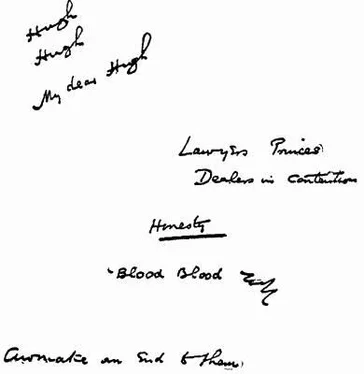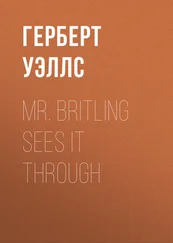Herbert Wells - Mr. Britling Sees It Through
Здесь есть возможность читать онлайн «Herbert Wells - Mr. Britling Sees It Through» весь текст электронной книги совершенно бесплатно (целиком полную версию без сокращений). В некоторых случаях можно слушать аудио, скачать через торрент в формате fb2 и присутствует краткое содержание. Жанр: Классическая проза, на английском языке. Описание произведения, (предисловие) а так же отзывы посетителей доступны на портале библиотеки ЛибКат.
- Название:Mr. Britling Sees It Through
- Автор:
- Жанр:
- Год:неизвестен
- ISBN:нет данных
- Рейтинг книги:4 / 5. Голосов: 1
-
Избранное:Добавить в избранное
- Отзывы:
-
Ваша оценка:
- 80
- 1
- 2
- 3
- 4
- 5
Mr. Britling Sees It Through: краткое содержание, описание и аннотация
Предлагаем к чтению аннотацию, описание, краткое содержание или предисловие (зависит от того, что написал сам автор книги «Mr. Britling Sees It Through»). Если вы не нашли необходимую информацию о книге — напишите в комментариях, мы постараемся отыскать её.
Mr. Britling Sees It Through — читать онлайн бесплатно полную книгу (весь текст) целиком
Ниже представлен текст книги, разбитый по страницам. Система сохранения места последней прочитанной страницы, позволяет с удобством читать онлайн бесплатно книгу «Mr. Britling Sees It Through», без необходимости каждый раз заново искать на чём Вы остановились. Поставьте закладку, и сможете в любой момент перейти на страницу, на которой закончили чтение.
Интервал:
Закладка:
The first intimations of this that struck upon his mind were the news of the behaviour of the Kaiser and the Berlin crowd upon the declaration of war, and the violent treatment of the British subjects seeking to return to their homes. Everywhere such people had been insulted and ill-treated. It was the spontaneous expression of a long-gathered bitterness. While the British ambassador was being howled out of Berlin, the German ambassador to England was taking a farewell stroll, quite unmolested, in St. James's Park.... One item that struck particularly upon Mr. Britling's imagination was the story of the chorus of young women who assembled on the railway platform of the station through which the British ambassador was passing to sing—to his drawn blinds—"Deutschland, Deutschland über Alles." Mr. Britling could imagine those young people, probably dressed more or less uniformly in white, with flushed faces and shining eyes, letting their voices go, full throated, in the modern German way....
And then came stories of atrocities, stories of the shooting of old men and the butchery of children by the wayside, stories of wounded men bayoneted or burnt alive, of massacres of harmless citizens, of looting and filthy outrages....
Mr. Britling did his utmost not to believe these things. They contradicted his habitual world. They produced horrible strains in his mind. They might, he hoped, be misreported so as to seem more violent or less justifiable than they were. They might be the acts of stray criminals, and quite disconnected from the normal operations of the war. Here and there some weak-minded officer may have sought to make himself terrible.... And as for the bombardment of cathedrals and the crime of Louvain, well, Mr. Britling was prepared to argue that Gothic architecture is not sacrosanct if military necessity cuts through it.... It was only after the war had been going on some months that Mr. Britling's fluttering, unwilling mind was pinned down by official reports and a cloud of witnesses to a definite belief in the grim reality of systematic rape and murder, destruction, dirtiness and abominable compulsions that blackened the first rush of the Prussians into Belgium and Champagne....
They came hating and threatening the lands they outraged. They sought occasion to do frightful deeds.... When they could not be frightful in the houses they occupied, then to the best of their ability they were destructive and filthy. The facts took Mr. Britling by the throat....
The first thing that really pierced Mr. Britling with the conviction that there was something essentially different in the English and the German attitude towards the war was the sight of a bale of German comic papers in the study of a friend in London. They were filled with caricatures of the Allies and more particularly of the English, and they displayed a force and quality of passion—an incredible force and quality of passion. Their amazing hate and their amazing filthiness alike overwhelmed Mr. Britling. There was no appearance of national pride or national dignity, but a bellowing patriotism and a limitless desire to hurt and humiliate. They spat. They were red in the face and they spat. He sat with these violent sheets in his hands— ashamed .
"But I say!" he said feebly. "It's the sort of thing that might come out of a lunatic asylum...."
One incredible craving was manifest in every one of them. The German caricaturist seemed unable to represent his enemies except in extremely tight trousers or in none; he was equally unable to represent them without thrusting a sword or bayonet, spluttering blood, into the more indelicate parts of their persons. This was the leit-motif of the war as the German humorists presented it. "But," said Mr. Britling, "these things can't represent anything like the general state of mind in Germany."
"They do," said his friend.
"But it's blind fury—at the dirt-throwing stage."
"The whole of Germany is in that blind fury," said his friend. "While we are going about astonished and rather incredulous about this war, and still rather inclined to laugh, that's the state of mind of Germany.... There's a sort of deliberation in it. They think it gives them strength. They want to foam at the mouth. They do their utmost to foam more. They write themselves up. Have you heard of the 'Hymn of Hate'?"
Mr. Britling had not.
"There was a translation of it in last week's Spectator .... This is the sort of thing we are trying to fight in good temper and without extravagance. Listen, Britling!
" You will we hate with a lasting hate;
We will never forgo our hate—
Hate by water and hate by land,
Hate of the head and hate of the hand,
Hate of the hammer and hate of the crown,
Hate of seventy millions, choking down;
We love as one, we hate as one,
We have one foe, and one alone—
ENGLAND!"
He read on to the end.
"Well," he said when he had finished reading, "what do you think of it?"
"I want to feel his bumps," said Mr. Britling after a pause. "It's incomprehensible."
"They're singing that up and down Germany. Lissauer, I hear, has been decorated...."
"It's—stark malignity," said Mr. Britling. "What have we done?"
"It's colossal. What is to happen to the world if these people prevail?"
"I can't believe it—even with this evidence before me.... No! I want to feel their bumps...."
§ 3
"You see," said Mr. Britling, trying to get it into focus, "I have known quite decent Germans. There must be some sort of misunderstanding.... I wonder what makes them hate us. There seems to me no reason in it."
"I think it is just thoroughness," said his friend. "They are at war. To be at war is to hate."
"That isn't at all my idea."
"We're not a thorough people. When we think of anything, we also think of its opposite. When we adopt an opinion we also take in a provisional idea that it is probably nearly as wrong as it is right. We are—atmospheric. They are concrete.... All this filthy, vile, unjust and cruel stuff is honest genuine war. We pretend war does not hurt. They know better.... The Germans are a simple honest people. It is their virtue. Possibly it is their only virtue...."
§ 4
Mr. Britling was only one of a multitude who wanted to feel the bumps of Germany at that time. The effort to understand a people who had suddenly become incredible was indeed one of the most remarkable facts in English intellectual life during the opening phases of the war. The English state of mind was unlimited astonishment. There was an enormous sale of any German books that seemed likely to illuminate the mystery of this amazing concentration of hostility; the works of Bernhardi, Treitschke, Nietzsche, Houston Stewart Chamberlain, became the material of countless articles and interminable discussions. One saw little clerks on the way to the office and workmen going home after their work earnestly reading these remarkable writers. They were asking, just as Mr. Britling was asking, what it was the British Empire had struck against. They were trying to account for this wild storm of hostility that was coming at them out of Central Europe.
It was a natural next stage to this, when after all it became manifest that instead of there being a liberal and reluctant Germany at the back of imperialism and Junkerdom, there was apparently one solid and enthusiastic people, to suppose that the Germans were in some distinctive way evil, that they were racially more envious, arrogant, and aggressive than the rest of mankind. Upon that supposition a great number of English people settled. They concluded that the Germans had a peculiar devil of their own—and had to be treated accordingly. That was the second stage in the process of national apprehension, and it was marked by the first beginnings of a spy hunt, by the first denunciation of naturalised aliens, and by some anti-German rioting among the mixed alien population in the East End. Most of the bakers in the East End of London were Germans, and for some months after the war began they went on with their trade unmolested. Now many of these shops were wrecked.... It was only in October that the British gave these first signs of a sense that they were fighting not merely political Germany but the Germans.
Читать дальшеИнтервал:
Закладка:
Похожие книги на «Mr. Britling Sees It Through»
Представляем Вашему вниманию похожие книги на «Mr. Britling Sees It Through» списком для выбора. Мы отобрали схожую по названию и смыслу литературу в надежде предоставить читателям больше вариантов отыскать новые, интересные, ещё непрочитанные произведения.
Обсуждение, отзывы о книге «Mr. Britling Sees It Through» и просто собственные мнения читателей. Оставьте ваши комментарии, напишите, что Вы думаете о произведении, его смысле или главных героях. Укажите что конкретно понравилось, а что нет, и почему Вы так считаете.






